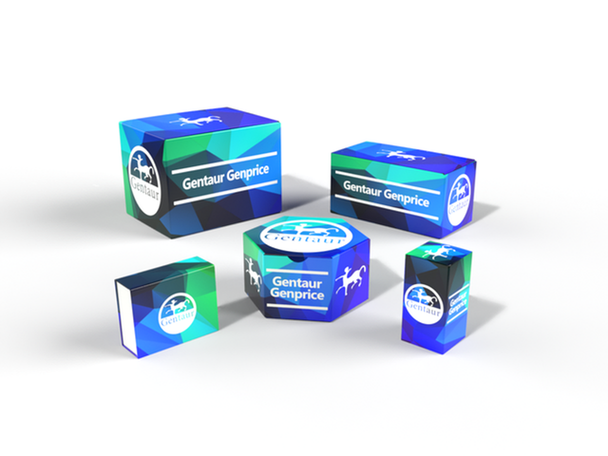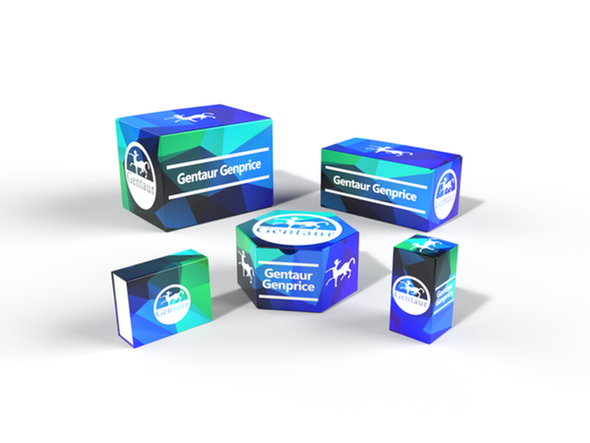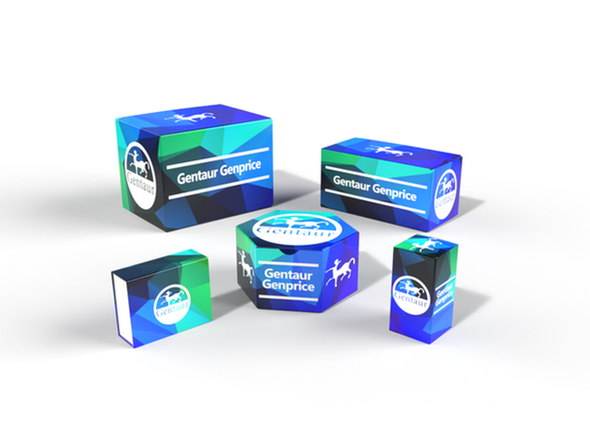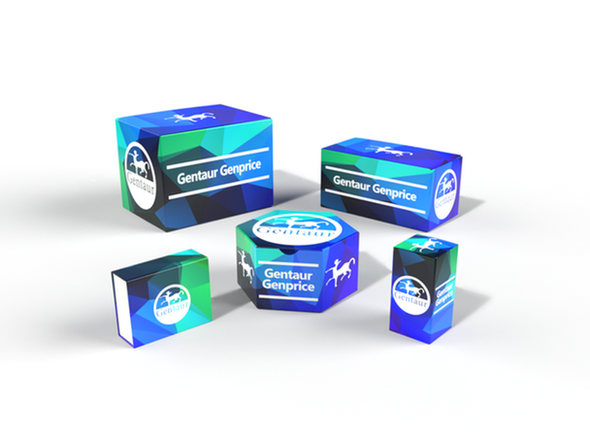356
EpiNext High-Sensitivity Bisulfite-Seq Kit (Illumina) | P-1056A
- SKU:
- 356-P-1056A-GEN
- Availability:
- Usually shipped in 5 working days
Description
EpiNext High-Sensitivity Bisulfite-Seq Kit (Illumina) DataSheet
The EpiNext™ High-Sensitivity Bisulfite-Seq Kit (Illumina) is designed to bisulfite-convert DNA and prepare an Illumina-based library for bisulfite sequencing, all in one kit. Intended applications include whole genome (WGBS), oxidative (oxBS-seq), and other bisulfite-next generation sequencing. The optimized protocol and components of the kit allow subnanogram amounts of DNA to be bisulfite converted and fragmented simultaneously followed by quick non-barcoded (singleplexed) and barcoded (multiplexed) library construction in less than 7 hours. The kit has the following advantages:
- Innovative method - Allows for simultaneous bisulfite conversion and size-appropriate DNA fragmentation. The bisulfite DNA can be directly ligated to adaptors thereby eliminating the possibility of breaking adaptor-ligated fragments, which often occurs with currently used WGBS.
- Fast and streamlined procedure - The procedure from DNA bisulfite treatment to ready-to-use library DNA can be completed within 6 hours and 30 minutes.
- Complete conversion - Completely converts unmethylated cytosine into uracil (>99%) with negligible inappropriate- or error-conversions of methylcytosine to thymine.
- High sensitivity and efficiency - Innovative adaptor ligation of bisulfite DNA eliminates loss of fragments and selection bias, which enables input DNA to be as low as 0.2 ng, making it ideal for methylation profiling of precious, limited samples. The kit can be used for both non-barcoded (singleplexed) and barcoded (multiplexed) DNA library preparation.
- Extremely convenient - The kit contains all required components for each step of DNA library preparation, which are sufficient for bisulfite conversion, ligation, clean-up, size selection and library amplification, thereby allowing the bisulfite DNA library preparation to be streamlined for the most reliable and consistent results.
- Minimal bias - Ultra HiFi amplification enables achievement of reproducibly high yields of DNA libraries with minimal sequence bias and low error rates.
- Broad sample suitability - Starting materials can be genomic DNA isolated from various tissue/cell samples such as such as fresh and frozen tissue, cultured cells from a flask or microplate, microdissection samples, paraffin-embedded tissue, biopsy, embryonic cells, plasma/serum samples, and body fluid samples, etc. DNA enriched from various enrichment reactions such as ChIP, MeDIP/hMeDIP or exon capture may be also used as starting material.
Background Information
DNA methylation occurs by the covalent addition of a methyl group (CH3) at the 5-carbon of the cytosine ring, resulting in 5-methylcytosine (5-mC). DNA methylation is essential in regulating gene expression in nearly all biological processes including development, growth, and differentiation. Alterations in DNA methylation have been demonstrated to cause a change in gene expression. For example, hypermethylation leads to gene silencing or decreased gene expression while hypomethylation activates genes or increases gene expression. Aberrant DNA methylation is also associated with pathogenesis of diseases such as cancer, autoimmune disorders, and schizophrenia. Thus, genome-wide analysis of DNA methylation could provide valuable information for discovering epigenetic markers used for disease diagnosis, and potential targets used for therapeutics.
Principle & Procedure
This kit includes all reagents required for successfully preparing a library directly using bisulfite DNA generated from a tiny amount of input DNA. In this preparation, DNA is simultaneously bisulfite converted and fragmented to the appropriate length during the bisulfite process. The bisulfite-treated DNA, which is in single stranded form, is then simultaneously converted to dsDNA and adaptor ligated. The ligated fragments are size selected and purified using MQ binding beads, which allows for quick and precise size selection of DNA. Size-selected DNA fragments are amplified using a high-fidelity PCR Mix which ensures maximum yields from minimum amounts of starting material and provides highly accurate amplification of library DNA with low error rates and minimal bias.
Starting Materials
Starting materials can be genomic DNA isolated from various tissue/cell samples such as fresh and frozen tissue, cultured cells from a flask or microplate, microdissection samples, FFPE tissue, plasma/serum, and body fluid samples, etc. DNA enriched from various enrichment reactions such as ChIP, MeDIP/hMeDIP or exon capture may also be used as starting material. DNA should be without any previous restriction digestion step. Plasmid DNA can be used for bisulfite treatment with or without previous linearization, as the kit allows for DNA denaturation status to remain during the entire DNA bisulfite conversion process and direct ligation of adaptors to bisulfite DNA. Input amount of DNA can be from 0.2 ng to 200 ng. For optimal preparation, the input amount should be 10-50 ng.
Additional Information
Category: |
*Genomic Library Construction Kits |
Research Area: |
Next Generation Sequencing, DNA Methylation |
Target Applications: |
Library Construction, Sample Modification |
Input Type: |
DNA |
Vessel Format: |
Tube-based |
Shipping: |
Blue Ice |
Note: |
This product is available in other size, please contact us for more details. |






